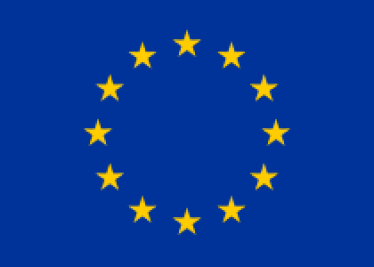School for Sonic Memory – Athens 2021 Residency report
Scroll down to visualise this report in PDF format.
As part of the ALEX Creative Europe project coordinated by Mucem, Theatrum Mundi and Onassis Stegi are producing a pluri-disciplinary nomadic residency program exploring sound, memory and trans-Mediterranean resonances called the School for Sonic Memory. Together, and in collaboration with local artists, urbanists and researchers, the 6 participants will form a ‘school’ for sonic memory, investigating the ways that three cities across the Mediterranean resonate with one another, how elements of a connected and conflictual past are made audible within them.
Dates: 7-13 November 2021
Various Locations
At the start of the residency some of the initial questions posed by the School of Sonic Memory that the participants were invited to respond were:
Whether it is possible to identify trans-Mediterranean sonic practices?
What these practices might sound like?
How does the past of one city be heard in another’s sonic culture?
How does the classification as a heritage site affect the overall dynamics of the surrounding urban environment and what are the politics of preservation?
The following documentation attempts to capture in an abbreviated manner the activities and discussions that took place during the week-long collaboration between nomadic and local residents in Athens.
Participants included local and nomadic residents:
Asmaa Jama, Onyeka Igwe, Hatem Hegab, Monai de Paula Antunes, Youmna Saba, Maria Sideri, Dana Papachristou, Yorgos Samantas, Natassa Dourida, Marilia Kastrouni.
Theatrum Mundi team:
Andrea Cetrulo and Cecily Chua.
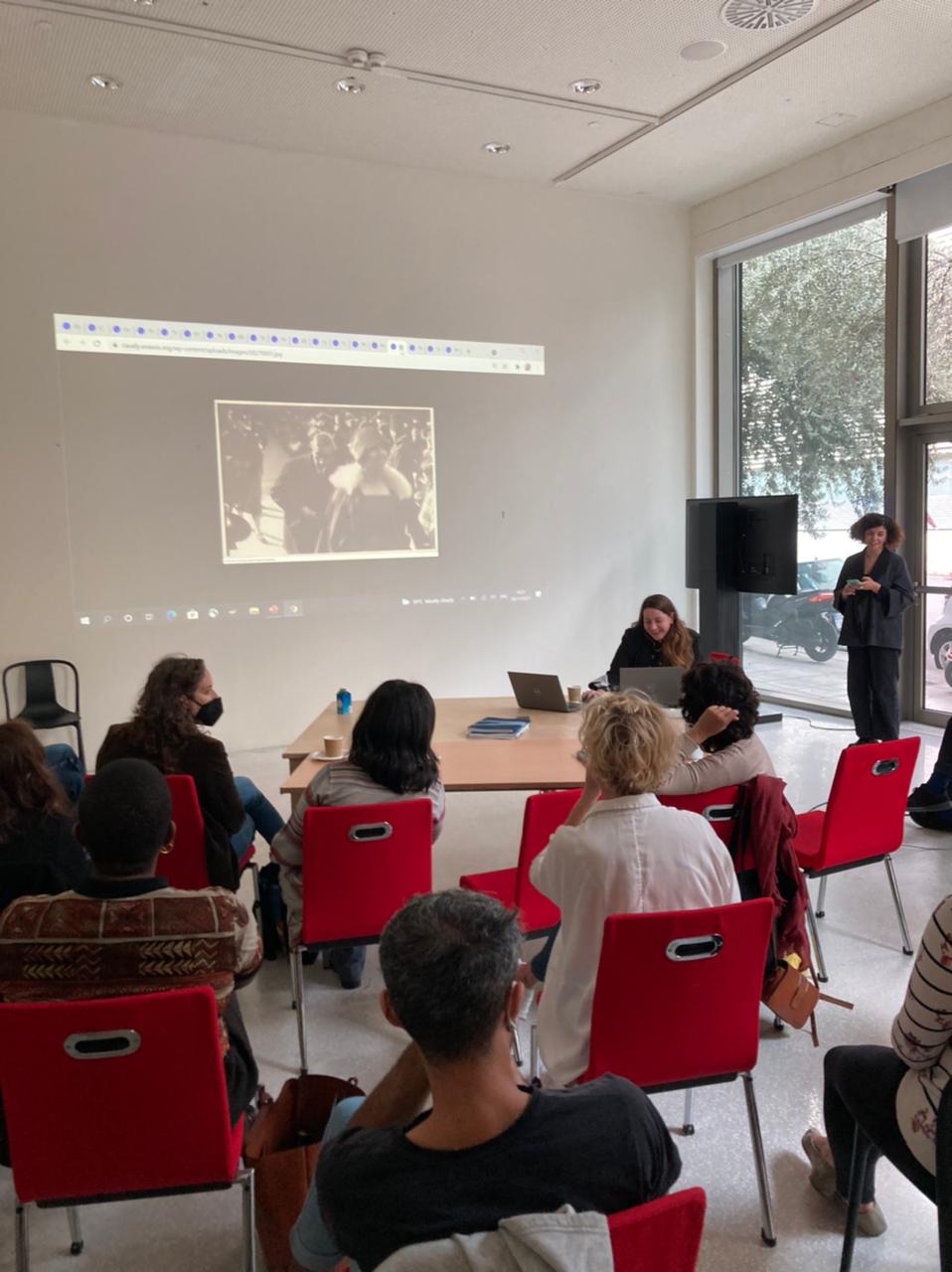
Monday 8 November
10:00 – 13:00
Group session at Acropolis Hill
The first encounter between all participants took the form of a walk to the Acropolis of Athens, traversing different scenarios and sonic landscapes from the noisy Syngrou Avenue to the interstitial spaces of tunnels and bridges connecting this part of the city to the quieter Acropolis Hill. This excursion also intended to emphasize the perspective of the tourist as a way of seeing the city.
14:00 – 18:00
Presentations
The walk was followed by a more formal session dedicated to the presentation of the residents’ individual practices, inviting them to do so by showcasing one of their works. This resulted in a rather eclectic yet cohesive exchange between the participants who stem from different disciplinary and cultural backgrounds and work with diverse mediums (film, music, painting, writing, activism, dance, broadcasting) yet have myriad of interests in common. The presentations were later extended to the wider organizational team involved in the Alexandria project from various cities across Europe and North Africa.
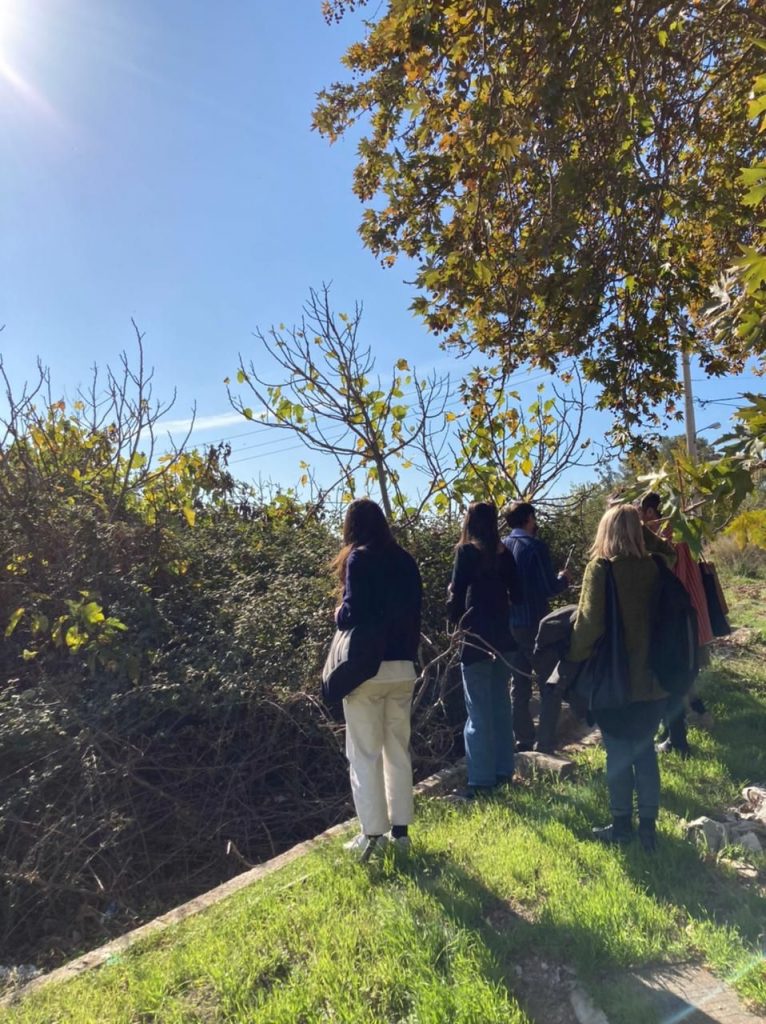
Tuesday 9 November
10:00 – 11:00
Cavafy Archive visit
As part of the programme, a visit by the Cavafy archive in Athens had been planned in alignment with the interests of various residents who work with archival materials in their own research. Cavafy’s body of work was also particularly relevant to the project as much of his oeuvre was produced between Athens and Alexandria.
11:00 – 13:00
Reading Group
Residents had been asked to select a text in advance to read out loud. Instead of making use of the habitual working space at Stegi, the group unanimously decided that it would be beneficial for the creative process to conduct the session at a nearby open space (an open garden in the premises of a nearby university). The chosen texts pivoted around the themes of water, mythology, migration, heritage and sound. This session proved to be very inspiring and enjoyable for the residents, who voiced their interest in giving some continuity to this format in upcoming residencies.
15:00-18:00
Visit to the seafront
The initial activity planned for the afternoon was a visit to the port Pireaus area in Athens, but taking on board the suggestions from local residents, the group decided to visit the Kallithea area following a river path leading to the sea. One of the highlights of the walk was the diverse architectural style that we encountered along the way, which some of the local residents could contextualize and provide information about. One of the observations from the non-local residents was that it was rather peculiar how cemented Athens seemed to be, making it difficult to actually have access or have views of the sea despite being surrounded by it.
19:00 – 22:00
Maria Ilia Kastrouni Film and Talk at Onassis Stegi
The day culminated with a screening of Synoikia to Oneiro (1961) and a discussion led by Marilia Kastrouni, one of the local residents who studies the role of gossip in city-making and how it acts as a soundscape of the Mediterranean, historically connecting Alexandria and Marseille.

Wednesday 10 November
10:00 – 14:00
Free time
The group was given a free morning to do independent research and explore the city on their own terms.
18:00 – 22:00
Syrian Greek Youth Forum Dinner
The group gathered at the home of one of the members of the Syrian and Greek Youth Forum (SGYF), Kareem Alqabany, who kindly hosted us along with two other colleagues, Ayman Alkala and Wael Habbal for dinner, a discussion and a music circle. The discussion focused on their work as part of the SGYF and their personal and professional experiences as refugees in Athens in contrast with other Western European cities. Residents were also introduced to the thriving neighbourhood of Exarcheia.
Thursday 11 November
10:00 – 18:00
Local residents session at Communitism
The day commenced with a meeting at Monastraki square where local resident Natassa Dourida, co-founder of the cultural association Communitism, led a guided walk of the area,framing it from a historical, architectural and developmental perspective.
The walk culminated at Communitism in Metaxourgia where local residents Dana Papachrisotou and Yorgos Samantas presented their work on Sonic Monumentality, which opened up a discussion about prospective collaborative work between local and nomadic residents. Some of the ideas gestating have to do with the role of gossip and subaltern narratives as a way of reclaiming the city, giving notoriety to city dwellers who might not be represented in conventional accounts of world-making. The theme of decentralizing knowledge and information through radio signals was also discussed.
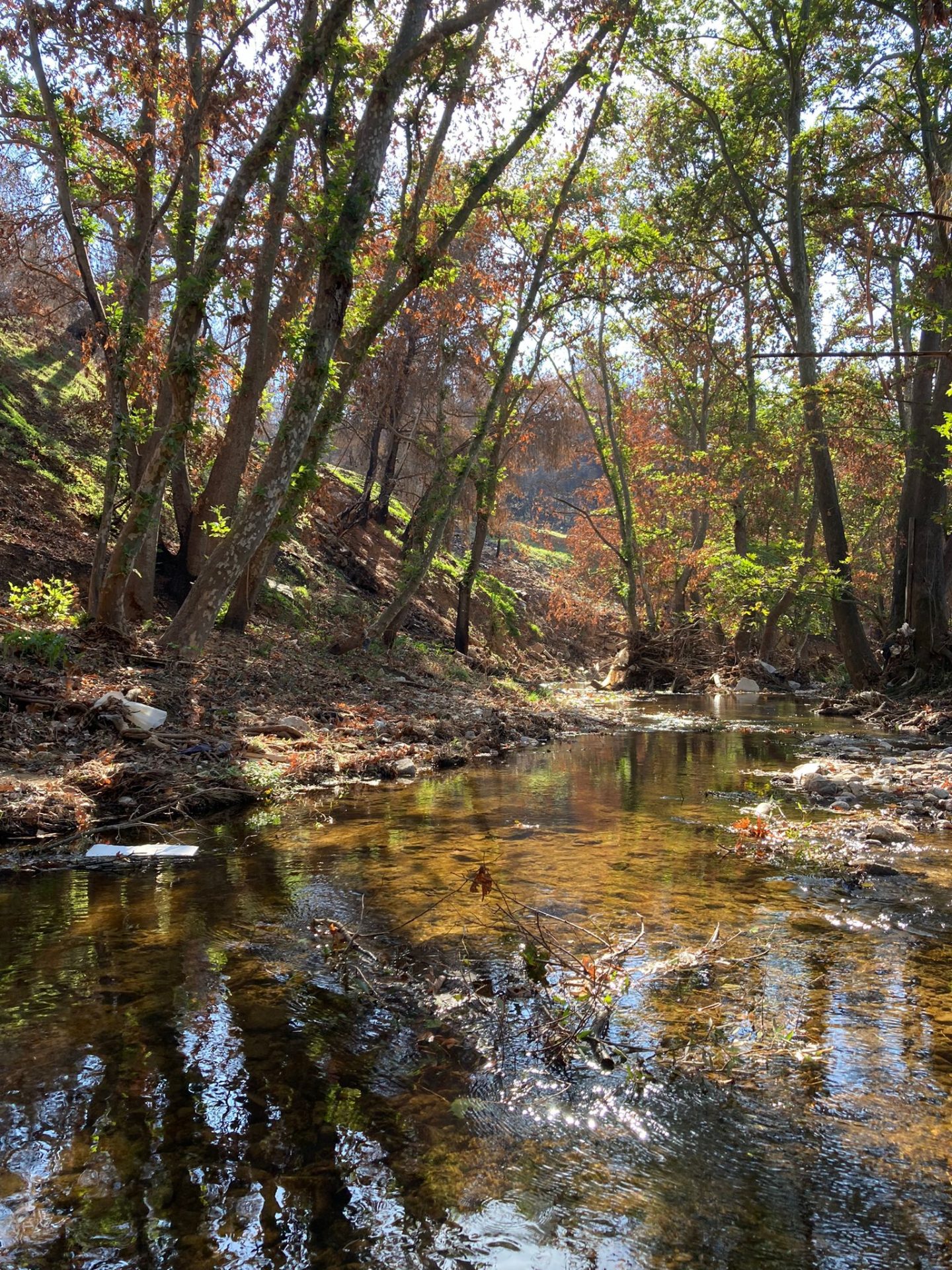
Friday 12 November
10:00 – 14:00
Visit the Hadrian Aqueduct
Nadia Siokou and Giorgos Sachinis of the UrbanDig project in Athens led a tour of the Hadrian Aqueduct infrastructure that connects different points of central Athens with its suburbs. The starting point was Dexameni Square in Kolonaki from where a bus headed towards Halandri, making two stops: at the Olympic Village (where there is an entrance to the aqueduct), an area redeveloped for hosting the Olympic Games in 2004 which was then neglected by the local authorities, and another stop at an industrial area where an unsuspected portion of the river Kifisos runs. Our final stop was back at our departing point in Kolonaki where we visited the Lykabbetos reservoir which has been in disuse since the more recent water supply system was built.
Saturday 13 November
10:00 – 14:00
Reflections on the week
The final group session was dedicated to reflecting on the week, sharing group observations and planning for future residencies. The residents were interested in creating a collaborative project that maps/archives the underground and maritime connections between Athens, Marseilles and Alexandria, focusing on mythology, subaltern cosmogonies and narratives of circulation through sound and heritage/monuments, rethinking their conventional understanding.
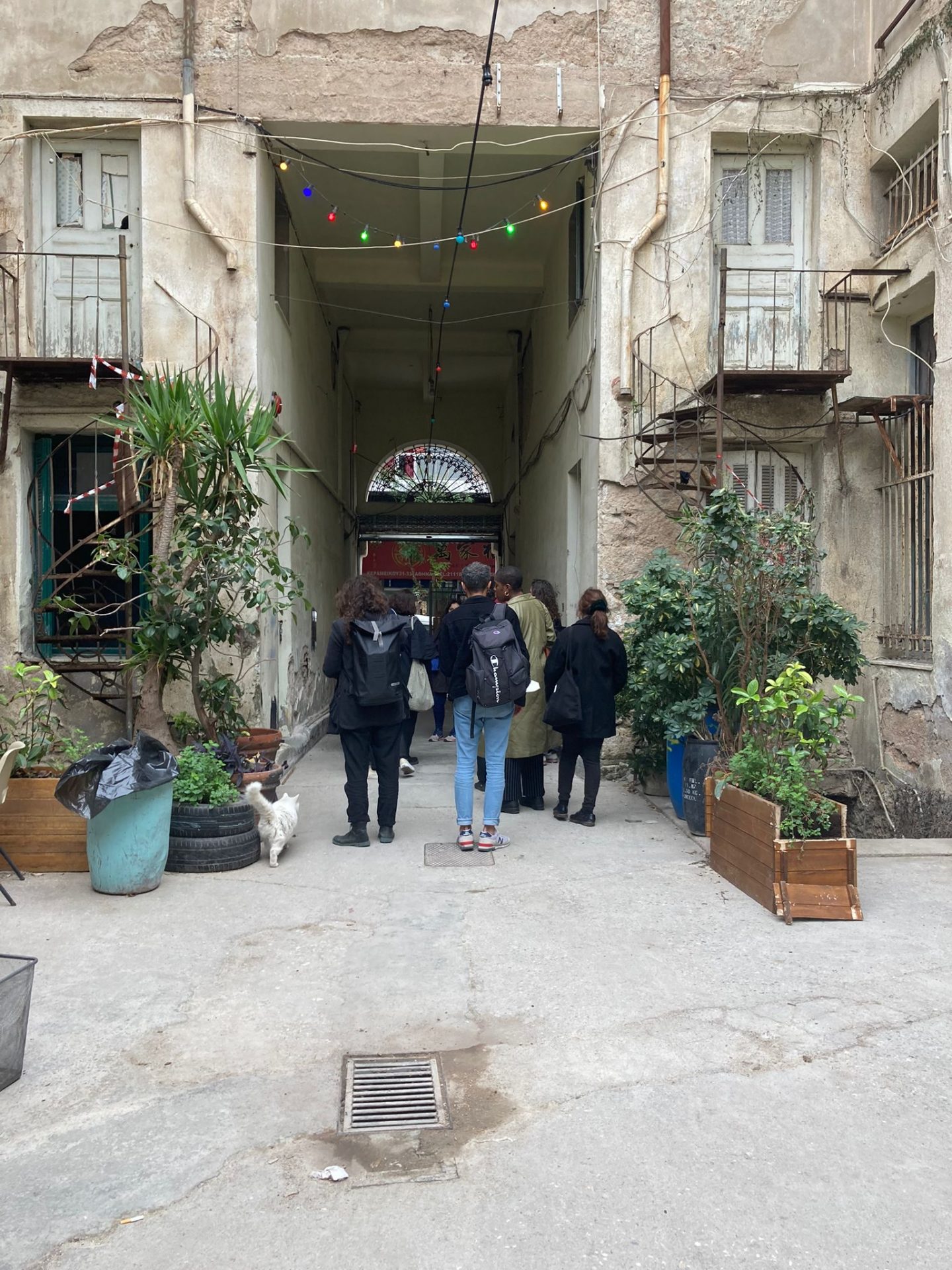
Overview of themes
• Water as therapy and as threat (e.g hostile architecture in Metaxourgia)
• Water and sound as monuments
• Radio waves as a medium for decentralizing information
• Hydro-commons (Astrid Neimari; Animism; Mythology)
• Sonic shadows/Archive as an alternative to hegemonic narratives
• Archaeoacoustics
• Heritage in relation to funding priorities and the dangers of nostalgia
• Migration and circulation of music and myths
• Reality making in relation to migratory legal status in different cultural contexts: Mediterranean vs ‘technical’ Western worldviews
• Gossip as protocol
• Archival obsolete technologies such as the VHS, cassettes as a medium and mode of circulation of culture
• Fiction and storytelling accounting for multiplicity
• Sonic monuments as forms of contestation and of reclaiming the city
Possible collaborative outcomes and formats:
• Mapping
• Archival recollection
• Gossip as sonic monuments: ‘Whispering Monuments’
• Audiopaper
• Meditation and disorientation as a collective practice to create work
Text: Cecily Chua, Theatrum Mundi
Theatrum Mundi is a Charitable Incorporated Organisation, with the charitable aim of improving the understanding of cities through education and research. We think that collaboration with artists can offer city makers — architects, planners, engineers, and urbanists — critical approaches to the way their crafts shape the public life of cities. Our concern is for the ways the public lives of cities, in all their forms, are understood and designed. We aim to enrich these by engaging urbanists in co-production of knowledge, culture, and design, with artists, writers, performers, and scholars. We convene practitioners and scholars in workshops, seminars, public events, and creative projects. We also publish independently and through other platforms. Established now as a charity based in London, our projects and programmes operate internationally with a wide range of partners. Theatrum Mundi was founded at LSE Cities in 2012, as a series of conversations led by LSE Professor of Sociology Richard Sennett and Dr Adam Kaasa. It was established as a research project at LSE Cities through seed funding from Nesta, and at the Institute for Public Knowledge at New York University through a grant from the Mellon Foundation. After 5 years of incubation and through the kind support of colleagues at both NYU and LSE, it became an independent charity in 2017.
Become a member: Membership – Theatrum Mundi (theatrum-mundi.org)





